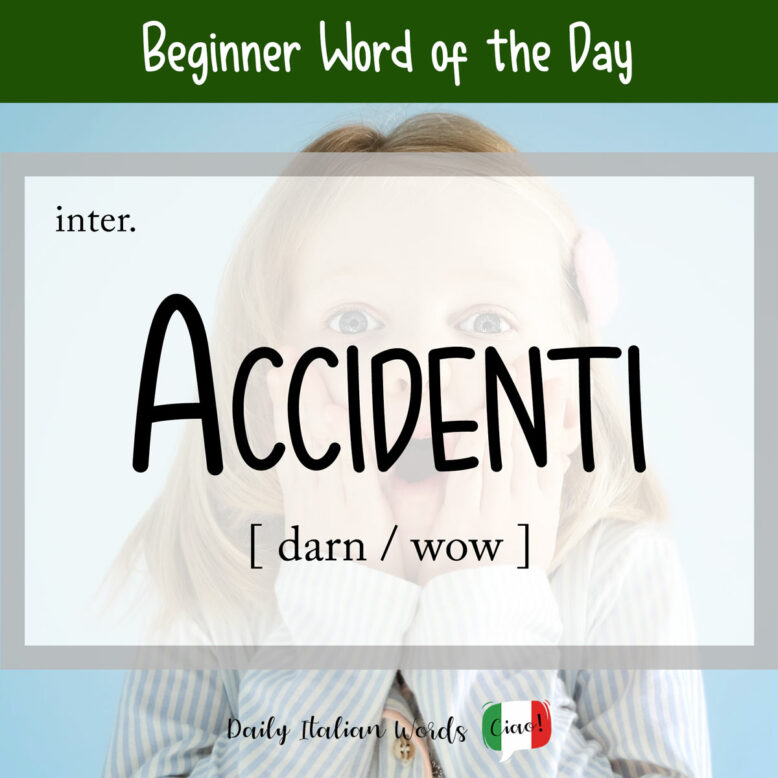Accidenti! is one of the mildest interjections found in Italian. The plural of accidente (mishap or sudden illness), it is used to express a variety of emotions including wonder, anger and annoyance.
Learn with our video

Did you know that…?
Accidenti is actually the ellipses of expressions such as ti arrivino degli accidenti or ti vengano accidenti (lit: may illnesses come to you).
When used in a positive sense, accidenti translates as Wow! Gosh! or My goodness!
Accidenti, che bella canzone!
Wow, what a beautiful song!
When used to comment on something negative, it best translates as Darn! or Drat!
Accidenti, mi sono scordato di avere un appuntamento oggi! Chissà se riesco ancora ad arrivare in tempo?!
Darn, I forgot I have a meeting today! I wonder if I can still get there in time?!
Accidenti followed by the preposition a (to) is used to curse people or situations in the mildest way possible. It can be used both seriously and jokingly.
Accidenti a lui e alla sua testardaggine!
Darn him and his stubbornness!

Despite not being vulgar, Accidenti! is often toned down even further with euphemisms such as:
- Accipicchia!
- Accidempoli!
- Acciderba!
In its singular form, accidente (which is a masculine noun) becomes a synonym for niente or nulla (nothing / anything) when describing negative situations. In English, the closest translation would be a darn / damn thing. For example:
Con tutta questa nebbia, non vedo un accidente!
With all this fog, I can’t see a darn thing!
In some cases, accidente can also denote a person who is either very lively (usually a child) or stubborn and is therefore considered annoying.
The idiomatic expression mandare un accidente a qualcuno means to curse somebody (or literally ‘to send an illness to someone’) whereas prendersi un accidente means to catch a sickness, to get sick. It resembles the English expression to catch one’s death.
Copriti bene quando esci, altrimenti ti prenderai un accidente!
Cover yourself well when you get out, otherwise you’ll catch your death of cold!
This article is also available in video format on our YouTube channel. The audio version can be found on Podbean, Google Podcast, Apple Podcast and Spotify.
Heather Broster is a graduate with honours in linguistics from the University of Western Ontario. She is an aspiring polyglot, proficient in English and Italian, as well as Japanese, Welsh, and French to varying degrees of fluency. Originally from Toronto, Heather has resided in various countries, notably Italy for a period of six years. Her primary focus lies in the fields of language acquisition, education, and bilingual instruction.


